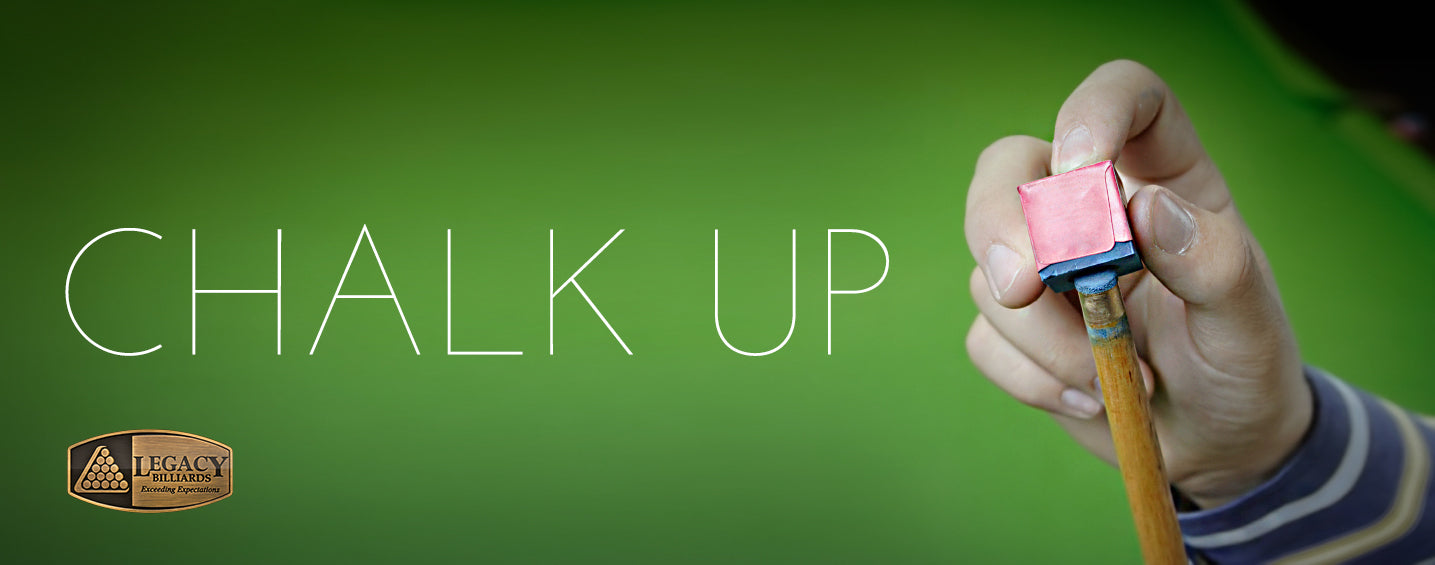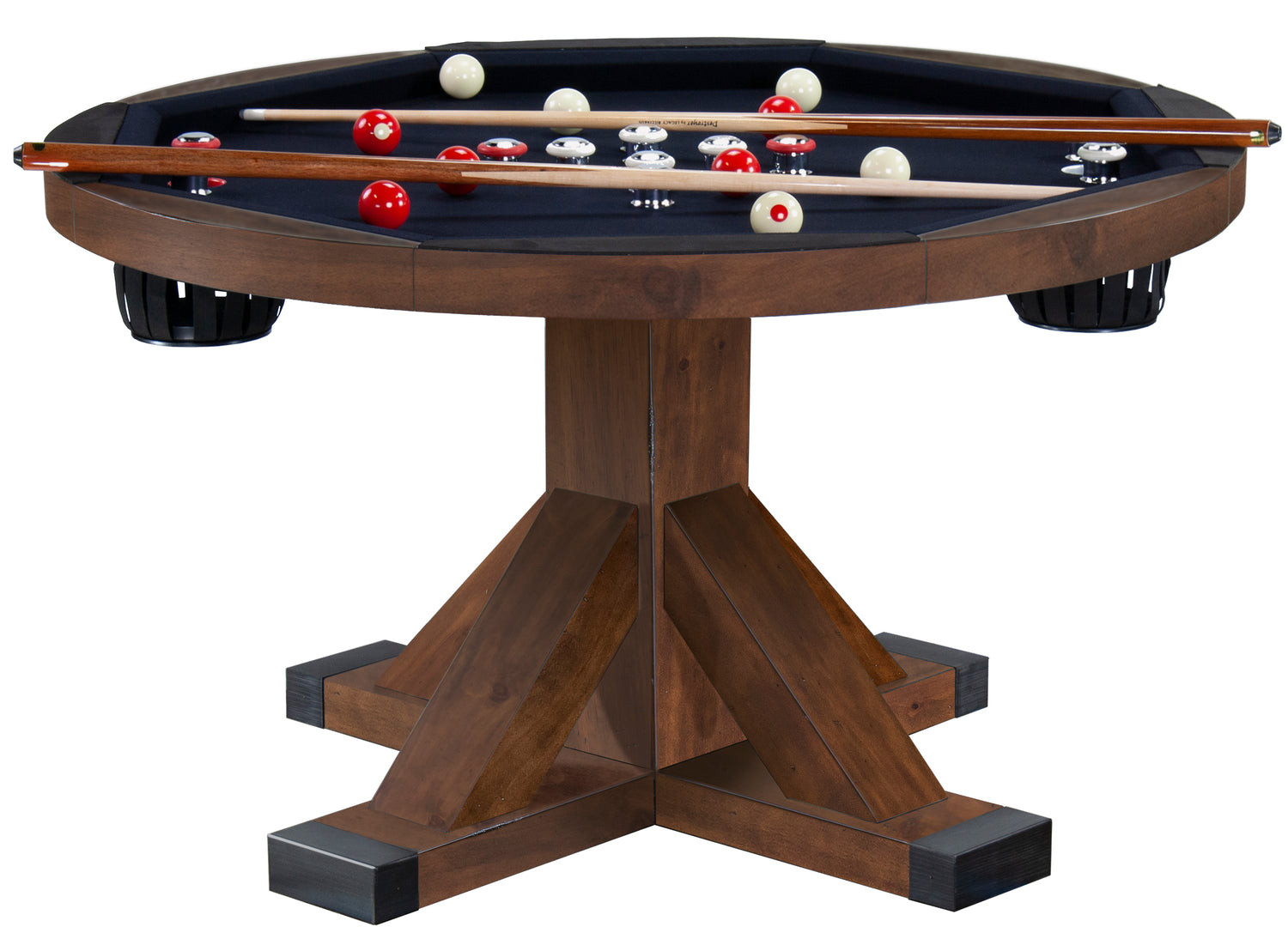If you’ve ever watched a game of billiards, you may wonder why the players apply chalk to the end of their cue sticks. Or if you play, you might be curious about how and when it is recommended to ‘chalk up’. The reason chalk is applied to a cue stick is that it adds friction. Chalk adds ‘motion-resistance’ between the cue and the spot
where it hits the cue ball. This prevents the cue from sliding off the ball prematurely, ruining the shot (called a ‘miscue’). Over time, the tip of a pool stick becomes worn and smooth from use. Chalk provides the friction necessary to make a shot. Another less-direct advantage to chalking up is that it forces the player to pace him or herself and spend a little extra time focusing and concentrating between shots.
How frequently should a player add chalk?
The answer can vary from player to player, but generally players chalk up after every other shot. Also, if a player is considering a shot that requires some extra spin on the ball, he or she will likely chalk up right before that shot, as the smaller amount of surface area used on both the cue tip and the ball requires additional friction.
Is there a disadvantage to chalking up frequently?
The only real disadvantage of frequently chalking up is that it adds extra chalk dust to the table and balls. To minimize this, consider gently tapping your cue stick after
chalking, to shake off any loose chalk.
What is the best way to chalk up?
The first step is to understand your cue stick, as they come in different levels of hardness. Softer cue tips hold more chalk, however they tend not to last as long as harder ones. Chalk should be applied like lipstick - lightly, but completely and evenly. Grinding the chalk into the tip will only wear the tip down and shorten its
life, not to mention get chalk all over your clothes! If you can see a large hole in the chalk, this is a good indicator that the chalk should be replaced.



